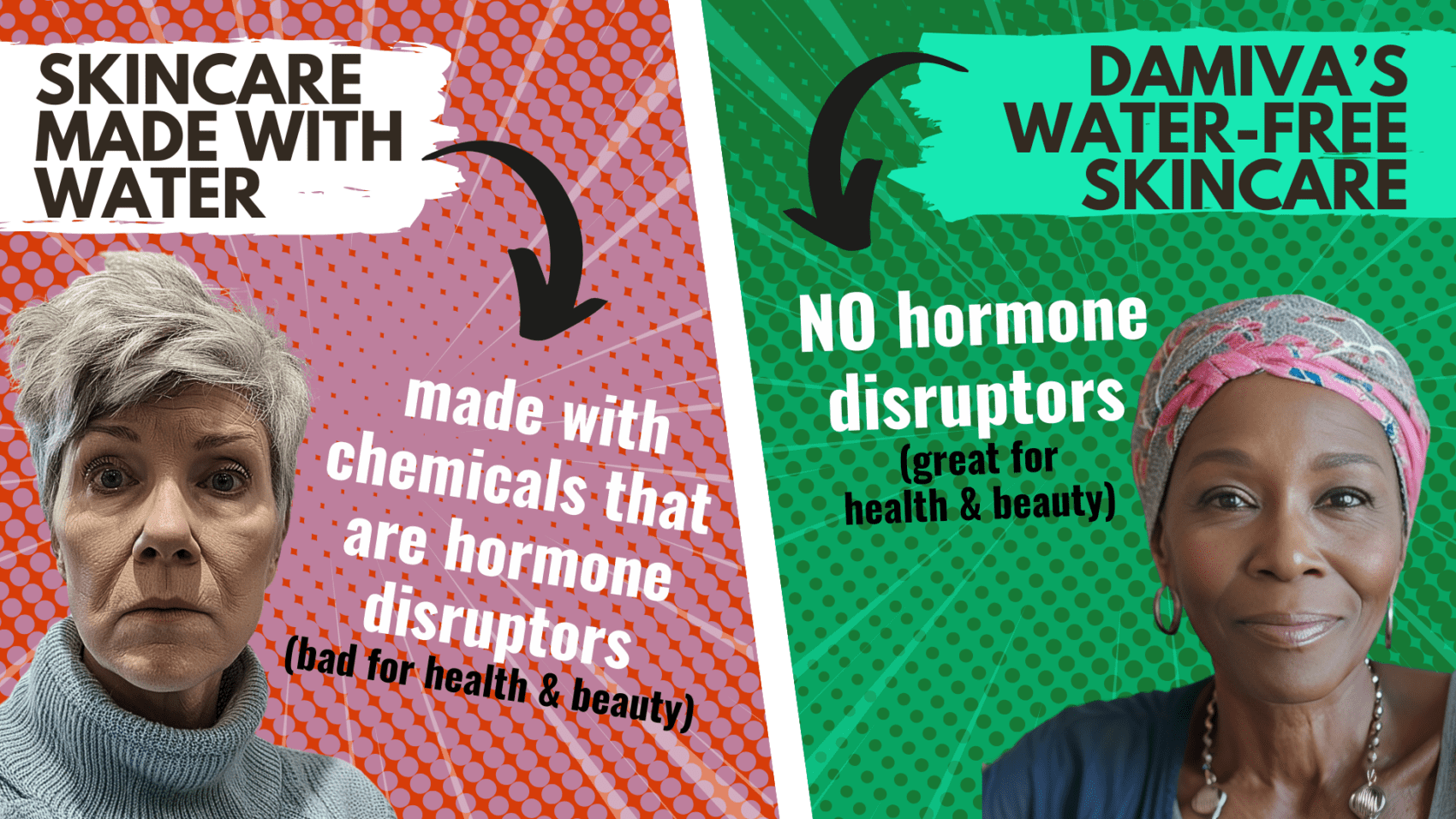Introduction to Collagen and Menopause
Understanding Collagen and Its Role in the Body
Collagen is a vital protein that serves as a building block for various structures in the body, including skin, bones, tendons, and ligaments. It provides strength and elasticity, contributing to the overall health and appearance of the skin. As the most abundant protein in the human body, collagen is essential for maintaining the integrity of our connective tissues. It plays a crucial role in the renewal of skin cells and is a key component in the skin’s ability to retain moisture and firmness.
The Impact of Menopause on Collagen Production
Menopause is a natural phase in a woman’s life, typically occurring around the age of 51, characterized by the cessation of menstrual cycles. This transition brings about hormonal changes, notably a decline in estrogen levels, which directly affects collagen production. Estrogen stimulates fibroblasts, the cells responsible for collagen synthesis. As estrogen levels drop, so does the activity of these fibroblasts, leading to a marked reduction in collagen. Studies indicate that women may lose up to 30% of their skin collagen in the first five years following menopause, with an ongoing annual decline thereafter. This significant decrease in collagen can manifest as dry skin, increased wrinkles, sagging, and thinning, which are common concerns during menopause.
Addressing Collagen Deficiency During Perimenopause and Menopause
Combatting the effects of reduced collagen during menopause involves a multifaceted approach. Collagen supplementation, whether through oral or topical applications, has been shown to improve skin hydration, elasticity, and reduce the appearance of wrinkles. Oral supplements, such as hydrolyzed collagen, provide amino acids that are essential for building collagen fibers, while topical treatments with collagen-stimulating peptides can penetrate the skin to encourage collagen production. Additionally, lifestyle choices such as a balanced diet rich in antioxidants, omega-3 fatty acids, and vitamins, particularly vitamin C, can support collagen synthesis. Regular exercise also plays a role in maintaining healthy joints and promoting overall well-being during this transitional period.
It is important for women to be proactive in addressing collagen deficiency as they approach perimenopause and continue through menopause. By understanding the role of collagen, the impact of menopause on its production, and the ways to address this deficiency, women can take steps to maintain their skin’s health and vitality during and after the menopausal transition.
Collagen Supplementation: Types and Considerations
Different Types of Collagen and Their Sources
Collagen is the most abundant protein in the human body, playing a crucial role in maintaining the structure and integrity of skin, bone, muscles, and connective tissues. There are at least 28 types of collagen, but types I, II, and III are the most common in collagen supplements. Type I collagen is predominantly found in the skin, bones, and connective tissues; type II is found in cartilage; and type III supports the structure of muscles, organs, and arteries.
Collagen supplements are derived from various sources, including bovine (cow), porcine (pig), chicken, and marine (fish) collagen. Bovine and marine sources are the most common, with marine collagen being favored for its high absorption rate and bioavailability. These supplements are available in several forms, such as hydrolyzed collagen (collagen peptides), gelatin (cooked collagen), and raw or undenatured collagen.
How to Choose the Right Collagen Supplement
When selecting a collagen supplement, consider the following:
- Collagen Type: Choose a supplement that contains the type of collagen that aligns with your health goals (e.g., type I and III for skin health or type II for joint health).
- Source: Opt for a supplement that sources collagen from animals that are pasture-raised, wild-caught, or free from added hormones and antibiotics.
- Form: Hydrolyzed collagen peptides are a popular choice due to their solubility and ease of digestion.
- Additional Ingredients: Some supplements include vitamins, minerals, or other additives that may enhance the benefits of collagen or cater to specific dietary needs.
- Third-Party Testing: Look for products that have been independently tested for quality and purity.

Popular Read: Endocrine Disruptors in Skincare: What You Need to Know
Potential Allergies and Safety of Collagen Supplements
Collagen supplements are generally considered safe for most people. However, they can pose allergy risks for individuals with allergies to fish, shellfish, or eggs, as these are common sources of collagen. It’s crucial to check the label for allergen information if you have known allergies.
Vegetarians and vegans should note that most collagen supplements are animal-derived, although there are vegan alternatives that provide the necessary amino acids to support the body’s collagen production.
As with any supplement, it’s important to consult with a healthcare provider before starting collagen supplementation, especially if you have existing health conditions or are taking other medications. This ensures that the collagen will not interfere with your health regimen and is safe for your specific needs.
Lastly, the quality of collagen supplements can vary, as the industry is not strictly regulated. Opt for reputable brands that provide transparent information about their sourcing, manufacturing processes, and third-party testing to ensure you are getting a safe and effective product.
Skin Health and Collagen During Menopause
Improvements in Skin Elasticity and Moisture
As women enter menopause, the decline in estrogen levels leads to a decrease in collagen production, which can significantly affect skin health. Collagen is crucial for maintaining skin elasticity and moisture. Studies have shown that collagen supplementation can help to mitigate these effects. For instance, a 12-week study revealed that daily intake of collagen peptides led to notable improvements in skin hydration and elasticity. This suggests that collagen supplements could be a beneficial addition to a menopausal woman’s skincare regimen, potentially helping to restore a more youthful skin appearance and combat the dryness often associated with this life stage.
Reduction of Wrinkles and Dryness
One of the most visible signs of aging during menopause is the increase in wrinkles and skin dryness. Collagen plays a pivotal role in maintaining the skin’s structural integrity, and its decline can lead to more pronounced wrinkles. However, research indicates that collagen supplementation can significantly reduce wrinkle depth. A double-blind, placebo-controlled study found that post-menopausal women consuming a collagen supplement experienced a clinically measurable improvement in facial wrinkle depth, associated with increased collagen deposition in the dermis.
Collagen’s Effects on Cellulite and Stretch Marks
Cellulite and stretch marks are common concerns that can be exacerbated by the hormonal changes of menopause. While these skin issues are influenced by factors beyond just collagen levels, such as genetics and overall skin health, collagen’s role in skin structure suggests that increasing collagen intake could help. By potentially reinforcing the dermal layer, collagen supplements may improve the skin’s texture and appearance, thus reducing the visibility of cellulite and stretch marks. However, it’s important to note that while collagen can contribute to skin health, it should be part of a holistic approach to skincare during menopause.
In conclusion, collagen supplementation presents a promising option for addressing the skin-related challenges of menopause. By supporting skin elasticity, moisture, and reducing the appearance of wrinkles, cellulite, and stretch marks, collagen can play a key role in a comprehensive menopausal skincare routine. Nonetheless, it’s essential for individuals to consult with healthcare providers to ensure that collagen supplementation is appropriate for their specific health needs and circumstances.
Joint Health and Mobility
Collagen’s Role in Alleviating Joint Pain
Collagen is a vital protein that contributes to the health and resilience of joint tissues. As men age, and particularly during menopause, the body’s natural production of collagen decreases, which can lead to joint discomfort and pain. Supplementing with collagen, especially types I and II, can help maintain the integrity of cartilage, the rubber-like tissue that protects joints, and potentially alleviate joint pain. Studies suggest that consistent intake of hydrolyzed collagen may act as a mild pain reliever and improve joint function, particularly in individuals with osteoarthritis.
Benefits for Osteoarthritis and Rheumatoid Arthritis
For those suffering from osteoarthritis, the most common form of arthritis, collagen supplementation can be particularly beneficial. The degenerative joint disease is characterized by the breakdown of joint cartilage, leading to pain and stiffness. Collagen, specifically type II, is a major component of cartilage and its supplementation has been shown to slow the degenerative process. Similarly, rheumatoid arthritis, an autoimmune condition, leads to inflammation and joint damage. Collagen’s anti-inflammatory properties can help reduce swelling and tenderness, offering a complementary approach to traditional treatments.
Improving Joint Mobility and Quality of Life
Joint mobility is crucial for maintaining an active lifestyle and ensuring quality of life. Collagen supplementation can support joint health by promoting the regeneration of joint tissues and reducing inflammation. This can lead to improved flexibility, reduced stiffness, and enhanced overall mobility. By incorporating collagen into their health regimen, menopausal individuals may experience a significant improvement in daily activities, contributing to a more vibrant and fulfilling life post-menopause.
Conclusion: Collagen plays a critical role in maintaining joint health and mobility, especially during menopause when natural production declines. By supplementing with collagen, individuals may alleviate joint pain, slow the progression of joint-related diseases such as osteoarthritis and rheumatoid arthritis, and improve their overall quality of life through enhanced mobility.
Collagen’s Influence on Digestive Health
Addressing Leaky Gut Syndrome with Collagen
Leaky Gut Syndrome, a condition where the intestinal lining becomes permeable, allowing toxins and bacteria to enter the bloodstream, can be a distressing issue. Collagen, with its amino acids proline and glycine, plays a crucial role in reinforcing the gut lining. By strengthening the intestinal walls, collagen helps to seal the gut, thereby preventing the onset of leaky gut symptoms. This is particularly beneficial during menopause, when women may experience increased gastrointestinal sensitivity.
Collagen’s Role in Gastrointestinal Health
Collagen is not only the building block of skin and joints but also of the gastrointestinal tract. The amino acids found in collagen assist in the regeneration of the intestinal lining, promoting overall digestive health. As menopause can disrupt gut health due to hormonal changes, supplementing with collagen can help maintain the integrity of the gut lining. This, in turn, supports the absorption of nutrients and may alleviate common digestive issues associated with menopause such as bloating and irregularities in bowel movements.
Supporting Digestive Function and Waste Elimination
Collagen’s benefits extend to the smooth functioning of the entire digestive system. It aids in the breakdown of proteins and soothes the gut’s lining, ensuring efficient digestion and waste elimination. For menopausal women, this means that collagen can help manage symptoms like constipation and ensure that the digestive process remains as efficient as possible. By promoting a healthy gut environment, collagen indirectly supports the body’s natural detoxification processes, contributing to overall well-being during menopause.
In conclusion, collagen’s impact on digestive health is multifaceted, offering support for the gut lining, aiding in nutrient absorption, and promoting regular bowel movements. These benefits are particularly valuable for women undergoing menopause, who may be grappling with digestive discomfort as part of their menopausal symptoms. By incorporating collagen into their diet, either through collagen-rich foods or supplements, menopausal women can take a proactive step towards maintaining digestive health and comfort.
By the way, something for you, a little gift!!!
I am just in the middle of publishing my book. It’s about How women can balance their hormones. One part is about food and diet, of course.
Follow this link and enter your email.
I will send you this part of the book for free once the book is published. It has many concrete, practical tips and recipes and will help you feel better during menopause or times of Big hormonal fluctuations.
Annette, Damiva Lead for Health & Wellness


⭐️⭐️⭐️⭐️⭐️
“I needed a product like this for medical reasons. Thanks to this product I was able to do my physical therapy. The formula is very comfortable. It provides the right amount of lubrication. I will continue to use. I’m very happy to have found this because nothing else was working.”
Beatriz E, Cleo Customer
Additional Health Benefits of Collagen
Boosting Metabolism and Energy Levels
Collagen is a protein that plays a crucial role in the structure and function of various tissues in the body. Beyond its well-known benefits for skin and joint health, collagen may also have a positive impact on metabolism and energy levels. The amino acids in collagen, particularly glycine, are involved in the synthesis of creatine, which can provide muscles with the energy needed for performance. Additionally, collagen contains arginine and glutamine, which are amino acids that are important for maintaining the health of the immune system and providing energy to different cells in the body. By supporting muscle tissue and overall bodily functions, collagen can contribute to a more robust metabolism and increased energy levels.
Strengthening Nails and Hair
Collagen provides essential proteins that can help in strengthening nails and hair. As the building block of keratin, the protein responsible for hair and nail growth, collagen can improve the strength and elasticity of these tissues. Regular intake of collagen may lead to healthier, less brittle nails and can promote hair growth, potentially reducing the likelihood of hair thinning, which is often a concern during menopause.
Detoxification and Liver Health
The amino acid glycine, which is abundant in collagen, plays a significant role in the body’s detoxification process. It assists the liver in handling the influx of foreign substances that need to be processed and eliminated. Collagen’s glycine content supports the liver’s natural detoxification pathways, promoting overall liver health and function.
Cardiovascular Protection and Heart Health
Collagen’s influence on heart health is attributed to the amino acids proline and lysine, which help with the repair of damaged blood vessels, the formation of new tissue, and the reduction of arterial stiffness. By contributing to the structural integrity of arteries and preventing the buildup of plaque, collagen can play a part in reducing the risk of heart conditions such as atherosclerosis. This protective role is particularly important during menopause when women may experience changes in cardiovascular health.

Bette 100% All-Natural Relaxing Lavender Body Lotion.
Chemical-Free
Your relaxing night time body moisturizer to leave the day’s stress behind. Decompress and wish your body good night with the calming scent of lavender.
Conclusion
In conclusion, collagen’s benefits extend far beyond skin and joint health. Its role in boosting metabolism and energy levels, strengthening nails and hair, supporting detoxification and liver health, and protecting cardiovascular health makes it a valuable supplement for overall well-being, especially during menopause. As with any supplement, it is important to choose high-quality collagen products and consult with a healthcare provider to ensure they are appropriate for individual health needs.

Recommended by Health Care Professionals.
Loved by thousands of women who got their life back.
Conclusion: Integrating Collagen into a Menopausal Health Regimen
Summarizing the Benefits of Collagen for Menopause
Throughout the various stages of menopause, women experience a multitude of changes, many of which are linked to the decline in collagen production. Collagen, the most abundant protein in the body, is essential for maintaining skin elasticity, joint mobility, and overall tissue health. As estrogen levels drop, so does the body’s ability to produce collagen, leading to visible signs of aging and discomfort. However, integrating collagen supplementation into a menopausal health regimen can offer significant benefits. These include improvements in skin hydration and elasticity, reduction in wrinkles, support for joint health, potential relief from digestive issues, and even contributions to cardiovascular health.
Making an Informed Decision on Collagen Supplementation
Choosing to supplement with collagen is a decision that should be made with careful consideration of individual health needs and in consultation with healthcare providers. When selecting a collagen supplement, factors such as the type of collagen, its source, and the presence of any additional ingredients must be taken into account. It is also important to consider potential allergies and the overall safety of the supplement. Quality and efficacy can vary between products, so selecting a reputable brand that provides transparent information about sourcing and manufacturing processes is crucial.
Final Thoughts on Collagen as a Supportive Measure for Menopausal Health
Collagen supplementation can be a valuable addition to a holistic approach to managing menopause symptoms. While not a standalone solution, it can complement other lifestyle strategies such as a balanced diet, regular exercise, and adequate hydration. The potential benefits of collagen, particularly for skin and joint health, make it a compelling option for those looking to mitigate the effects of decreased collagen production during menopause. Ultimately, collagen can be a supportive measure that contributes to a higher quality of life and well-being during this natural transition.












